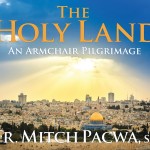When it comes to books regarding J.R.R. Tolkien and his books it has become much like scripture interpretation. Which means in this case is that you learn much more about the philosophy of the author and very little about Tolkien’s works. Famously his books have been taken up by socialists who rather crazily assumed he was a fellow traveler, to environmentalists, and hippies. Anybody with a narrative can read into his books much like scriptural eisegesis.
So I was both intrigued and wary of The Hobbit Party: The Vision of Freedom That Tolkien Got, and the West Forgot which was recently released by Ignatius Press and authored by the team of Jay Richards and Jonathan Witt.
Regarding Tolkien’s books I am relatively late to the game. For quite a while I ignored Fantasy as being unscientific and embarrassingly held a view much like Richard Dawkins disdain of Fairy stories. Added to that I remember seeing a parody novel as a youth called “Bored of the Rings” which I think unconsciously prejudiced me as an added weight towards any interest in the novels. Seeing the Rankin-Bass animated version certainly did not reduce my prejudice against the novels. It was only on my way into the Catholic Church that I kept running across references to these novels and I finally picked them up. Since then The Hobbit and the Lord of the Rings trilogy have been close to being an annual revisit. I am no Tolkien scholar by any means, just a Tolkien reader. The only biography I have read on him is Joseph Pearce’s Tolkien: Man and Myth, a Literary Life.
Reading these books through a lens of economics and small government could be such a distorted view with all the problems I referenced in the introduction paragraph. Is the Shire to be taken for an idealistic view of economics and government? Can some of Tokien’s views in this regard be seen in the novels. Coming away for this book I do think the authors make a good case for what the novels reveal about Tolkien’s economic and government views. Using the novels, his letters, and the originally unpublished volumes of his works they make a good case while not asserting something when there is ambiguity. Thankfully this book does not just concentrate on this narrative and leaves open where there is some doubt regarding Tolkien’s thoughts. I think I even enjoyed more the discussions regarding freedom, corruption of power, and just war theory. These discussion for me teased out more from the book and provided insights that will help me on my next read.
I remember the first time I read Return of the King and was very surprised that the destruction of the ring at Mt. Doom was in the middle of the novel and the episode of The Scourging of the Shire made little sense to me thematically. I have grown to appreciate that episode much more since and the chapter on this subject helped me even more. The final chapter titled Love and Death in Middle-Earth was also very enlightening. The book goes through the novels showing how much love and death was an integral part thematically. Over and over I was drawn to a deeper understanding of the novels and even such minor things as etymology of words used also brought this out for me.
So I found this book to be worthwhile giving me much to think about, but not being a Tokien scholar or a scholar of any kind I can’t testify to their assertions. Since I am already inclined to the views of the book my own biases could get in the way of a more critical read.












